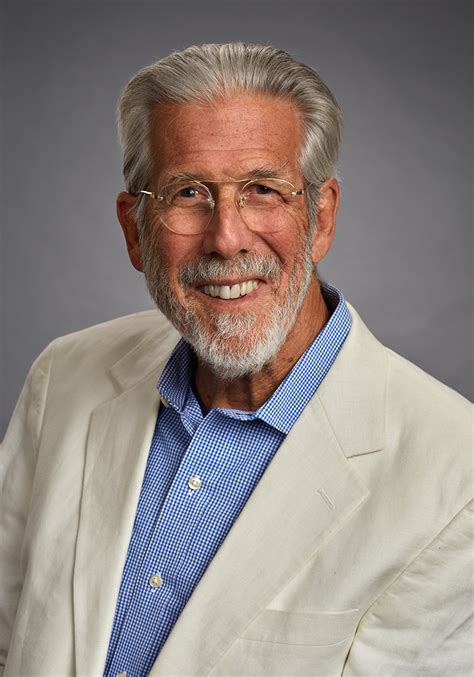Top 402 Monetary Quotes & Sayings - Page 7
Explore popular Monetary quotes.
Last updated on April 15, 2025.
In a monetary system, most of us live near our work with a house, car, and lifestyle we can afford (or, all too often, cannot afford), rather than the one we prefer. We are only as free as our purchasing power permits. Even many wealthy people today select a residence mainly to impress others with their status. Lacking a true sense of self worth, many live to impress others.
The problem is that people really just don't care and they have been "educated" not to care about the monetary system: that it's boring, it's difficult to understand, we need to have high minded people like "Greenscum" and Bernanke to do things like this (and don't forget Volker, there's the whole cast of them). The thing is that people have been educated or miseducated or brainwashed into believing that this is wayyyy too complicated for regular people to understand and that we need to let PhD economists guide us along in terms of what's right... and that's all bull.
Library of the Works of Ludwig von Mises”. Here is an article he wrote in 1951, some two years after his magnum opus Human Action appeared, where is lays out his case in a more popular form. The money sentences are “Economic theory has demonstrated in an irrefutable way that a prosperity created by an expansionist monetary and credit policy is illusory and must end in a slump, an economic crisis. It has happened again and again in the past, and it will happen in the future, too.
In Egypt the neoliberal programs have meant statistical growth, like right before the Arab Spring, Egypt was a kind of poster child for the World Bank and the IMF [International Monetary Fund:] the marvelous economic management and great reform. The only problem was for most of the population it was a kind of like a blow in the solar plexus: wages going down, benefits being eliminated, subsidized food gone and meanwhile, high concentration of wealth and a huge amount of corruption.
In practice [monetary management] is merely a high-sounding euphemism for continuous currency debasement. It consists of constant lying in order to support constant swindling. Instead of automatic currencies based on gold, people are forced to take managed currencies based on guile. Instead of precious metals they hold paper promises whose value falls with every bureaucratic whim. And they are suavely assured that only hopelessly antiquated minds dream of returning to truth and honesty and solvency and gold.
In all the thrashing about that results from our dwindling gold reserves, it's about time that this country and other countries get some perspective on the situation. The day this country is out of the stuff, that day gold becomes what it's worth as a metal and no longer will have much significance as a monetary measurement. It isn't the gold we have that makes this nation rich. It's what we make, our knowhow, our productivity. So long as this country produces more and better, the world will continue to want what we make.
The problem is that people really just don't care and they have been "educated" not to care about the monetary system: that it's boring, it's difficult to understand, we need to have high minded people like "Greenscum" and Bernanke to do things like this (and don't forget Volcker, there's the whole cast of them). The thing is that people have been educated or miseducated or brainwashed into believing that this is wayyyy too complicated for regular people to understand and that we need to let PhD economists guide us along in terms of what's right... and that's all bull.
Nevertheless, if we contemplate a society with a somewhat stable wage-unit, with national characteristics which determine the propensity to consume and the preference for liquidity, and with a monetary system which rigidly links the quantity of money to the stock of the precious metals, it will be essential for the maintenance of prosperity that the authorities should pay close attention to the state of the balance of trade. For a favourable balance, provided it is not too large, will prove extremely stimulating; whilst an unfavourable balance may soon produce a state of persistent depression.
What you should be in a rush for isn't necessarily the immediate monetary return, but it's to know that this equation existing between an employee and a company is being honored. What's the equation? I'm going to give you my most precious thing that I have - my time and my reputation. That's what the employee says. And the company says I'm going to take your time and your reputation and direct it at things that we believe collectively have a huge impact opportunity to do something extremely positive. And that positivity will get measured in impact and also economic upside.
Our first benchmark is to cut the deficit more quickly to safeguard Britain’s credit rating. I know that we are taking a political gamble to set this up as a measure of success. Protecting the credit rating will not be easy The pace of fiscal consolidation will be co-ordinated with monetary policy. And we will protect Britain's credit rating and international reputation.
We stand for a living wage. Wages are subnormal if they fail to provide a living for those who devote their time and energy to industrial occupations. The monetary equivalent of a living wage varies according to local conditions, but must include enough to secure the elements of a normal standard of living-a standard high enough to make morality possible, to provide for education and recreation, to care for immature members of the family, to maintain the family during periods of sickness, and to permit of reasonable saving for old age.
For complex reasons, our culture allows "economy" to mean only "money economy." It equates success and even goodness with monetary profit because it lacks any other standard of measurement. I am no economist, but I venture to suggest that one of the laws of such an economy is that a farmer is worth more dead than alive. A second law is that anything diseased is more profitable than anything that is healthy. What is wrong with us contributes more to the "gross national product" than what is right with us.
Most paper money initially existed as a substitute for gold. That's what gave it value. But right now what gives a currency value is other currency. Most countries hold reserves and the reserves are other currencies. If you are a backing up the euro with the dollar, what's backing up the dollar? I don't think it is going to go to a point where all you have is coins and bars of gold, but I do think that we are going to have to go back to a monetary system based in gold, not based on paper.
Once public opinion is convinced that the increase in the quantity of money will continue and never come to an end, and that consequently the prices of all commodities will not cease to rise, everybody becomes eager to buy as much as possible and restrict his cash holdings to minimum size... If the credit expansion is not stopped in time, the boom turns to crack-up boom: the flight into real values begins, and the whole monetary system founders.
The dirty little secret is that both houses of Congress are irrelevant. ... America's domestic policy is now being run by Alan Greenspan and the Federal Reserve, and America's foreign policy is now being run by the International Monetary Fund [IMF]. ...when the president decides to go to war, he no longer needs a declaration of war from Congress.
Look at any financial institution, at any bank. They're all photocopies of each other. There's no diversity of institutions and even less diversity of currency. Therefore, just as you say its very logical that an ecosystem like this will collapse, it's very predictable a monetary system like this will collapse, too. And it hasn't finished collapsing, by the way.
Monetary calculation is not the calculation, and certainly not the measurement, of value. Its basis is the comparison of the more important and the less important. It is an ordering according to rank, an act of grading (Cuhel), and not an act of measuring. It was a mistake to search for a measure of the value of goods. In the last analysis, economic calculation does not rest on the measurement of values, but on their arrangement in an order of rank.
With me, growing up in a theater family and having them be so supportive, from the jump, and being a part of this theater community where the brass ring is working, wherever that is, and then to play a character where he's not really concerned with that and is really just concerned with the monetary aspect of the job, and then to be identified with someone who is the antithesis of your energy and where you come from, has been a very interesting and surreal ride.
Economics should be defined in terms of what it is about. It should be about how people produce things, how people exchange them, how people earn income, how they pay taxes, how the government provides infrastructure with tax revenue, and how it conducts monetary policy. The subject has to be defined in terms of the object of inquiry.
What's happening is there's transfer of wealth from the poor and the middle class to the wealthy. This comes about because of the monetary system that we have. When you inflate a currency or destroy a currency, the middle class gets wiped out, so the people who get to use the money first, which is created by the Federal Reserve System, benefit, so the money gravitates to the banks and to Wall Street. That's why you have more billionaires than ever before.
There are many reasons why the general public doesn't really understand our monetary system. In the first place, money is something that people tend to get emotional about. After all, money involves, and always has involved, something closely akin to faith-which probably explains why in many past societies the money system has been in the hands of a priesthood, the subject of magical rites, and the ceremonial services of the tribe's medicine man.
I have long been in favor of a balanced budget restriction at the level of the federal government of the United States. Because the federal government has money-creating powers it can, in fact, be very damaging if it runs a series of budget deficits. With the state government in the United States, they don't have money-creating powers. The automatic discipline imposed by the fact that they are in a common monetary unit and don't have control over the money power means that the balanced budget restriction is less needed.
Much of American wealth is an illusion which is being secretly gnawed away and much of it will be completely wiped out in the near future....So what is the rest of your future? A grisly list of unpleasant events -- exploding inflation, price controls, erosion of your savings (eventually to nothing), a collapse of private as well as government pension programs, and eventually an international monetary holocaust which will sweep all paper currencies down the drain and turn the world upside down.
We are talking about an awesome power. It is the power to weave illusions that appear real as long as they last. That is the very core of the Fed's power. Of course not everyone is instinctively against this illusion-weaving power, and many even welcome it. Tragically, the innocent who understand little about the complexity of the monetary system suffer the most, while those who are in the know reap great profit whether the market is going up or down.
The theory of economic shock therapy relies in part on the roleof expectations on feeding an inflationary process. Reining in inflation requires not only changing monetary policy but also changing the behavior of consumers, employers and workers. The role of a sudden, jarring policy shift is that it quickly alters expectations, signaling to the public that the rules of the game have changed dramatically - prices will not keep rising, nor will wages.
Let's say I am a chocoholic and I eat tons of chocolate a day. A hundred thousands of tons a day. I have this craving, but I can't afford it, so I get a printing press, and I start printing money, and I print billions and billions to buy chocolate. So I create this boom in the chocolate industry, so stores are running out of chocolate. So they have demand, so chocolate makers expand. Cocoa growers expand. You create this great boom. But now the feds arrest me and shut me down. And now there is a depression in the chocolate industry. That's what happens with the monetary policy.
We made a sacred covenant to follow the Creator's life plan at all times, which includes the responsibility of taking care of this land and life for His divine purpose. We have never made treaties with any foreign nation, including the United States, but for many centuries we have honored this Sacred Agreement. Our goals are not to gain political control, monetary wealth nor military power, but rather to pray and to promote the welfare of all living beings and to preserve the world in a natural way.
A lot of joblessness in the black community doesn't seem to be reachable through fiscal and monetary policies. People have not been drawn into the labor market even during periods of economic recovery. Employers would rather not hire a lot of workers from the inner city. They feel people from the inner city are not job-ready, that the kids have been poorly educated, that they can't read, they can't write, they can't speak.
Today we are again witnessing the emergence of transnational elites ... [Whose] ties cut across national boundaries ...It is likely that before long the social elites of most of the more advanced countries will be highly internationalist or globalist in spirit and outlook ... The nation-state is gradually yielding its sovereignty... Further progress will require greater American sacrifices. More intensive efforts to shape a new world monetary structure will have to be undertaken, with some consequent risk to the present relatively favorable American position.
Political uncertainty around the world has more than doubled since the election of Trump. To find anything comparable we have to go way back, to the late 1920s for example, the times of the Great Depression. Or think of the United Kingdom in the 1970s, when the International Monetary Fund had to help the country out with a dramatic rescue operation. Up until the Greek crisis, that was the last time that the IMF was forced to intervene to such an extent in Europe.
As a general rule, when something gets elevated to apple-pie status in the hierarchy of American values, you have to suspect that its actual monetary value is skidding toward zero. Take motherhood: nobody ever thought of putting it on a moral pedestal until some brash feminists pointed out, about a century ago, that the pay is lousy and the career ladder nonexistent. Same thing with work: would we be so reverent about the 'work ethic' if it wasn't for the fact that the average working stiff's hourly pay is shrinking, year by year.
Hank Paulson, obviously, had spent his career on Wall Street, had a deep knowledge of the Street, and also was a very forceful personality, had a very good relationship with the president, and was in a very different place, for example, than Ben Bernanke, who is an academic, quiet guy: spent most of his time thinking about monetary policy.
If European monetary policy is run according to German interests, huge structural imbalances will accumulate. The Germans will then either have to pay to correct those imbalances or agree that the euro should not be run primarily according to German interests. If they are unwilling to do either of those things, the euro can't survive.
With QE3, we are essentially being bought out with our own money...and unemployment is being used to facilitate this process in a very clever manner. Monetary inflation is currently being offset by labor deflation. The way you avoid collapse is by printing money and stealing assets. The way you avoid inflation is with labor deflation.
The deepest principle in human nature is the craving to be appreciated."Mark McCormack, Author and sports entrepreneur"Psychologists tell us that money is a satisfier, not a motivator... Recognition is. That's why we do what we do... Recognition is critical to self-esteem. Without it, we feel undervalued, even insignificant. Money is nice, sure. But once you establish a basis of monetary rewards, without the accompanying verbal and social affirmation, the employee will quickly become disgruntled and ask for more. Eventually, more will never be enough.
When people become frightened, they look for things of real value. They will go to monetary metals, gold and silver, and they will buy other things, such as buying property. But no matter what we have, whether we have our gold coins or we have our property, if we have an authoritarian government, that is our greatest threat. So, I would like to think that there is no perfect protection, other than shrinking the size and scope and power of government, so that we can be left alone and take care of ourselves.
The American people have no idea they are paying the bill. They know that someone is stealing their hubcaps, but they think it is the greedy businessman who raises prices or the selfish laborer who demands higher wages or the unworthy farmer who demands too much for his crop or the wealthy foreigner who bids up our prices. They do not realize that these groups also are victimized by a monetary system which is constantly being eroded in value by and through the Federal Reserve System.
Using SROI to explore the value of our online question and answer service, askTheSite, helped us develop new mechanisms for speaking to young people and gain a real insight into the impact of our work. The project enabled us to demonstrate YouthNets commitment to robust impact measurement as well as our commercial approach to project evaluation. Perhaps most importantly, being able to assign a monetary value to askTheSite has enabled YouthNet to convey to current and potential funders how valuable the service is for both young people and the wider society in a language that they understand
My monetary studies have led me to the conclusion that central banks could profitably be replaced by computers geared to provide a steady rate of growth in the quantity of money. Fortunately for me personally, and for a select group of fellow economists, that conclusion has had no practical impact… else there would have been no Central Bank of Sweden to have established the award [Nobel Prize] I am honoured to receive.
There is a strange idea aboard, held by all monetary cranks, that credit is something a banker gives to a man. Credit, on the contrary, is something a man already has. He has it, perhaps, because he already has marketable assets of a greater cash value than the loan for which he is asking. Or he has it because his character and past record have earned it. He brings it into the bank with him. That is why the banker makes him the loan.
Artists are just entrepreneurs. It's up to them to figure out how or if they can make a monetary profit from their passion ? from their calling, as I discussed above. Sometimes they can. Musicians can sell music, even in the face of piracy. Or they can sell their services ? concerts, etc. Painters and other artists can profit in similar ways. A novelist could use kickstarter for a sequel or get paid to consult on a movie version.
The life of a chess master is much more difficult than that of an artist - much more depressing. An artist knows that someday there'll be recognition and monetary reward, but for the chess master there is little public recognition and absolutely no hope of supporting himself by his endeavors. If Bobby Fischer came to me for advice, I certainly would not discourage him - as if anyone could - but I would try to make it positively clear that he will never have any money from chess, live a monk-like existence and know more rejection than any artist ever has, struggling to be known and accepted.



































